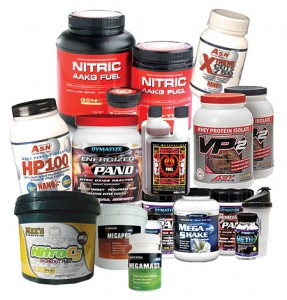Natural remedy support for surgery
May 20, 2009 by AnnA
Filed under Natural Medicine, Surgery

As I seem to have been having a number of friends in hospital recently, I thought it might be timely to remind you of my pre-hospital routine if you are undergoing surgery and to add in some news about the interaction between herbs, drugs and hospitals. My own pre-surgery routine is very simple: three days beforehand I start taking Arnica 30 twice a day, plus Rescue Remedy in water. The arnica deals with trauma and emotional shock before the operation, and helps recovery of internal bruising faster and I usually ask the nurse in charge to make sure it’s under my tongue the minute I wake up and Rescue Remedy helps again with any fears arising from the operation. I keep up this regime up to a week after the operation and add in at least a gram of vitamin C as it is essential both to help support your immune system and recover from any anaesthetic by helping remove it faster from your system.
Herbs and Surgery: As more people are regularly taking supplements and vitamins as part of their healthcare routine, this timely report comes from a US team from the Department of Plastic Surgery at Cleveland’s University Hospital. They are giving this list to any patient who is undergoing surgery, for whatever reason, and I thought you would like to know about it.
* For bleeding effects: gingko biloba, garlic, ginseng, dong quai, feverfew, fish oils
* For drug interactions: echinacea, goldenseal, liquorice, St. John’s wort, kava, valerian root
* For cardiovascular effects: ephedra, garlic
* For anaesthetic effects: valerian root, St. John’s wort, kava
* For photosensitivity effects: St. John’s wort, dong quai
* For hypoglycaemia effects: ginseng
SOS for supplements
September 15, 2007 by AnnA
Filed under Natural Medicine, Vitamins & Supplements
Your ability to freely choose and use natural medicines and supplements has been attacked on various fronts over the past few years. Campaigns have been ongoing to save specific supplements, or dosages, and now Consumers for Health Choice (CHC) are diving in with a campaign to Save Our Supplements by first targeting Gordon Brown and the new minister for health, Dawn Primarolo, by starting with a full page ad in The Guardian on the opening day of the Labour Party Conference on September 24th 2007. This ad will be an open letter to the Prime Minister and a further letter will be sent to the President of the European Commission, Jose Barroso as well as being placed in European journals in 12 countries to bring pressure on the commission to safeguard the future of consumer choice in the area of natural medicines and supplements.
Over 300 nutrients and nutrient sources that are already on the UK market, and accepted as safe by the regulators, are not included on the ‘Positive Lists’ the EU will accept and in order to get on the list it is estimated a manufacturer will have to submit a dossier of information that is estimated to cost around £250,000 per substance. This is obviously completely out of the range of the many small herbal companies that have been in existence for many years and it is anticipated that only 20 dossiers are expected to be submitted. One of the main areas of concern is over what the EU can set as maximum dosage for vitamins and minerals and these levels are likely to be extremely low. it will be illegal to market supplements which contain higher levels than these even though such levels have already been established through long usage as being safe. There has been substantial pressure from the pharmaceutical lobby and from the French and German Governments, to only allow low dose supplements and this would inevitably mean that a great many safe, popular and effective higher potency supplements will removed from the UK market. If you are a member of the Women’s Institute, you will be hearing more about this as CHC Director Sue Croft is in talks with the WI to encourage their 211,000 members to lend their support to the campaign. The WI has over 6,800 groups nationwide and is committed to improving the nations health through diet, so they would make ideal campaign partners.
More information on how to help, or if you wish to make a contribution to the campaign from the website at www.consumersforhealthchoice.com



